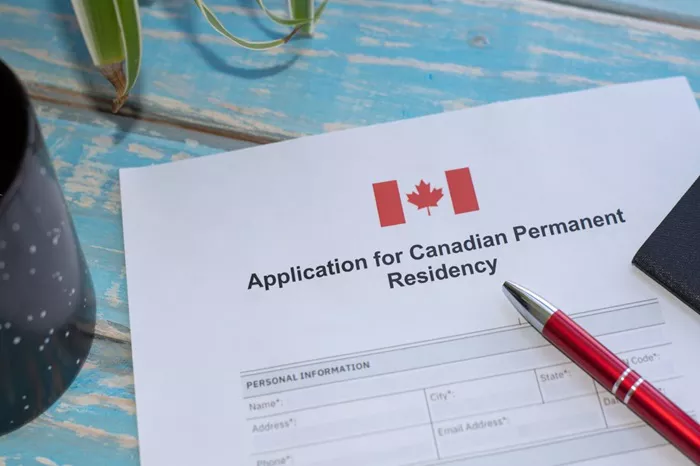Visa Requirements for US Permanent Residents
If you are a US permanent resident (Green Card holder), you may wonder whether you need a visa to visit Canada. The short answer is no, you do not need a visa for tourism, business, or transit purposes.
US permanent residents can visit Canada without a visa for short stays. However, there are some conditions and documentation requirements that you must meet to ensure a smooth entry into the country.
When traveling to Canada, you must carry:
- A valid passport from your country of citizenship
- Your valid Green Card (Form I-551)
These two documents are necessary to prove both your identity and your legal permanent resident status in the United States. You do not need a Canadian visa as long as your trip is for a short period and your purpose is tourism, business, or transit.
Electronic Travel Authorization (eTA)
Even though you don’t need a visa, you may still need to get an Electronic Travel Authorization (eTA) — depending on how you travel to Canada.
Who Needs an eTA
If you are flying to Canada, you must apply for an eTA before boarding your flight. This requirement applies to US permanent residents, even if you do not need a visa.
However, if you are entering Canada by land (car, bus, train) or sea (cruise ship, ferry), you do not need an eTA. In these cases, your passport and Green Card are enough.
How to Apply for an eTA
Applying for an eTA is easy and can be done online in just a few minutes. Here is how:
- Go to the official Canadian government website
- Click on “Apply for an eTA”
- Fill out the application form with your personal and passport information
- Pay the eTA fee (as of 2025, the cost is $7 CAD)
- Submit the application
Most applicants receive their eTA approval by email within minutes. However, some applications may take a few days if additional documents are needed.
The eTA is valid for five years or until your passport expires, whichever comes first.
Travel Documentation
To avoid any problems at the airport or border crossing, always travel with the right documents. US permanent residents should carry the following:
- A valid passport from their country of nationality
- A valid US Green Card
- A valid eTA (if flying to Canada)
Border agents may ask for proof of your immigration status and the purpose of your visit. Having these documents ready will help ensure a smooth and quick entry.
It’s also a good idea to bring copies of:
- Hotel bookings or invitation letters (if visiting friends/family)
- A return or onward travel ticket
- Proof of funds to support your stay
Special Cases
While a visa is not needed for tourism or short business trips, there are some situations where additional documentation is required.
Work in Canada
If you plan to work in Canada, you must apply for a work permit before you arrive. Being a US permanent resident does not give you the right to work in Canada without prior authorization.
Study in Canada
If you are going to Canada to study, you need a study permit if your course is longer than six months. Short-term courses under six months do not require a study permit.
Staying Longer Than Six Months
If your stay will last more than six months, you may need to apply for a visitor record or other immigration documentation. Your entry is subject to approval by Canadian immigration officers.
Always check the most up-to-date requirements on the official Canadian immigration website before traveling.
Practical Tips for Smooth Travel
Traveling to a new country, even as a tourist, requires preparation. Here are some practical tips to help make your trip to Canada stress-free:
1. Check Document Validity
Make sure your passport and Green Card are valid for the entire duration of your stay in Canada. Some travelers have been denied entry because of expired documents.
2. Apply for an eTA in Advance
Don’t wait until the last minute. Apply for your eTA a few weeks before your trip to avoid any delays or last-minute problems.
3. Know What You Can Bring
Canada has strict customs regulations. Make sure you know what items are restricted or prohibited. For example, certain food products, firearms, and large amounts of cash must be declared.
4. Be Honest at the Border
When speaking to Canadian border officers, be honest and polite. Clearly state the purpose of your visit and answer all questions truthfully.
5. Travel Insurance
Consider buying travel insurance, especially for medical emergencies. Healthcare in Canada is not free for visitors, and medical costs can be high.
6. Understand Canadian Laws
Remember that laws in Canada may differ from those in the US. For example, the legal drinking age is 18 or 19, depending on the province.
7. COVID-19 and Health Rules
Check the latest COVID-19 guidelines and health advisories, as these can change depending on the season or current health situation.
Conclusion
US permanent residents do not need a visa to visit Canada for tourism, business, or transit. However, if you are traveling by air, you must apply for an eTA before boarding your flight.
Always carry your valid passport, Green Card, and other necessary documents to ensure a hassle-free trip. If you plan to work, study, or stay for more than six months, you’ll need to apply for the appropriate Canadian permits.
With proper planning and the right documents, your visit to Canada will be smooth and enjoyable. Whether you’re exploring the streets of Toronto, hiking in Banff, or visiting family in Vancouver, Canada offers an incredible experience for every traveler.

